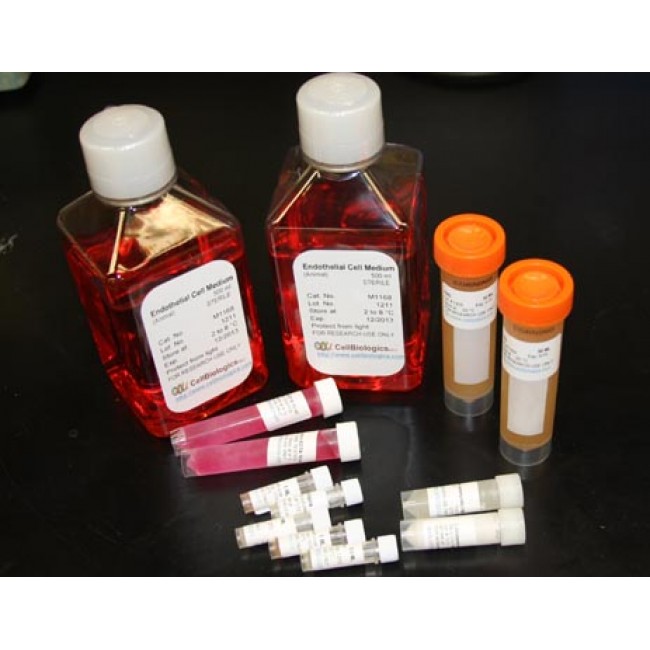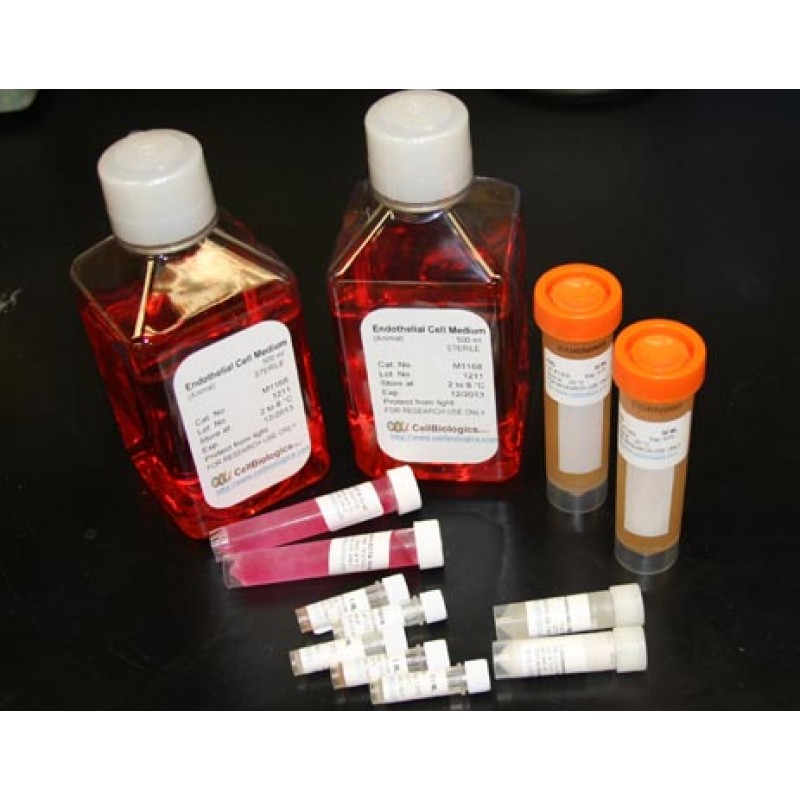Basic Fibroblast Growth Factor is found in almost all tissues of mesodermal and neuroectodermal origin and also in tumors derived from these tissues. Endothelial cells produce large amounts of this factor. Some bFGF is associated with the extracellular matrix of the subendothelial cells. Many cells express bFGF only transiently and store it in a biologically inactive form. The mechanism by which the factor is released by the cells is not known. It is released after tissue injuries and during inflammatory processes. FGF receptors are encoded by a gene family consisting of at least four receptor tyrosine kinases that transduce signals important in a variety of developmental and physiological processes related to cell growth and differentiation. bFGF stimulates the growth of fibroblasts, myoblasts, osteoblasts, neuronal cells, endothelial cells, keratinocytes, chondrocytes, and many other cell types.


